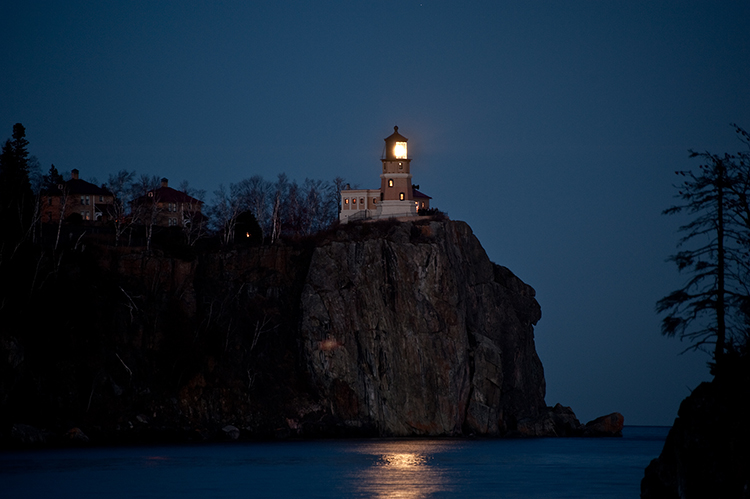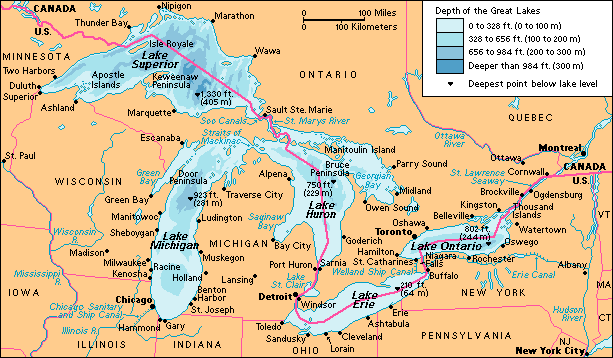The Gales of November: The Sinking of the Edmund Fitzgerald
Tuesday, November 10th, 2015November 10, 2015
Forty years ago today, the ore freighter SS Edmund Fitzgerald broke apart and sank in heavy waves during an abrupt, unseasonable wintry storm on Lake Superior. Heading from Superior, Wisconsin, to a steel mill near Detroit, the ship—the largest ever lost on the Great Lakes—went down in Canadian waters, about 17 miles (27 kilometers) from Whitefish Bay, Wisconsin. All 29 crew members died. None of their bodies were ever recovered.

The Split Rock Lighthouse at Two Harbors, Minnesota, is lit every November 10 to commemorate the sinking of the SS Edmund Fitzgerald. Credit: Anita Ritenour (licensed under CC BY 2.0)
The sinking begat disbelief and morbid fascination: how could such a huge, modern ship founder in a storm on a freshwater lake, mere minutes from a safe harbor? Had the ship, as some suspected, been damaged during a shoal grounding earlier in the voyage? Had freak, towering rogue waves exploited some structural failure, and had crew failed to properly secure cargo hatches? Investigators’ theories of the sinking failed to build to a concrete conclusion, and maritime enthusiasts continue to debate the causes of the famous wreck to this day. Its wreckage rests on the lake bed—broken almost exactly in half—in about 530 feet (162 meters) of water.
The sinking shocked residents of Great Lakes shipping towns and drew attention from around the world. Writers penned numerous tributes to the lost crew. The most famous among such tributes was the haunting “Wreck of the Edmund Fitzgerald” by the Canadian folk-pop singer/songwriter Gordon Lightfoot. In 1976, the song topped the Canadian pop charts and peaked at number two in the United States. Its lyrics included the following lines:
The lake, it is said, never gives up her dead
When the skies of November turn gloomy.
With a load of iron ore twenty-six thousand tons more
Than the Edmund Fitzgerald weighed empty,
That good ship and true was a bone to be chewed
When the “Gales of November” came early.
Back in Time article



